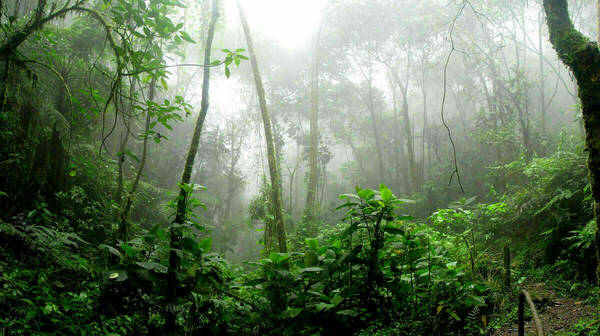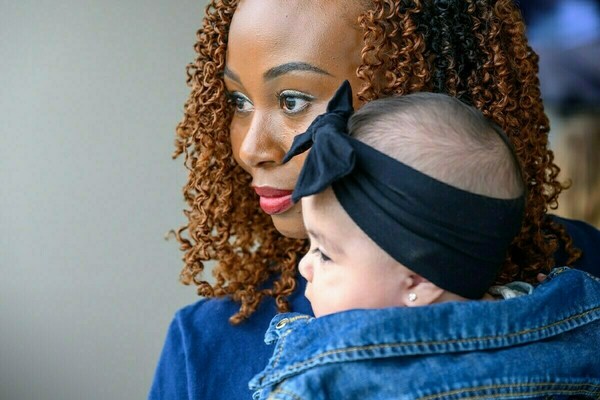How can we have better conversations about environmental conservation? New Notre Dame research charts a path.
As the planet faces mounting environmental crises, including a decline in global biodiversity, a new study from the University of Notre Dame calls for a seemingly simple yet transformative practice: better conversations.
In a co-authored paper published in Conservation Biology, Daniel C. Miller outlines five key principles to foster more effective and inclusive dialogue about conservation. The paper builds on more than a decade of collaborative work in conservation social science and presents a framework to address one of the field’s most pressing yet underexamined issues—how conservationists talk to one another.
“We often talk past each other in conservation,” said Miller, the Coyle Mission Collegiate Associate Professor at Notre Dame’s Keough School of Global Affairs. “As the field has expanded, so has the diversity of voices and worldviews—bringing with it friction, misunderstandings and competing priorities. Yet conservation is a multidisciplinary effort, requiring insights from ecology, economics and other social sciences as well as engineering, law and humanities. We have to learn to talk to one another more effectively.”
Conservation is fundamentally about people and the choices they make, said Miller, a core faculty affiliate of the Keough School’s Pulte Institute for Global Development, yet despite growing recognition of this principle, social science perspectives are still marginalized in conservation science, education and policy. Many practitioners struggle with integrating diverse viewpoints—especially when disagreements emerge around values, methodologies, or the role of science in political decision-making.
Miller and co-authors Ivan R. Scales from the University of Cambridge and Michael B. Mascia of Duke University argue that embracing this pluralism is not a weakness, but a strength—if managed with intentional dialogue.
“We’re not calling for everyone to agree,” Miller said. “Disagreement can be productive. But we need a shared vocabulary and a mutual willingness to understand where others are coming from.”
The five principles
The heart of the paper lies in five guiding principles designed to make conservation conversations more constructive:
- Engage with plural perspectives – Accept that people view conservation through different lenses—whether they are scientists, Indigenous leaders, community organizers or policymakers. These views should not be caricatured or dismissed.
- Everyone does not need to agree on everything – The goal is not perfect consensus but rather a productive engagement with disagreement, recognizing that trade-offs are inevitable.
- Seek basic knowledge of different disciplines and ways of knowing – Conservationists should be “bilingually literate,” Miller said. “If you’re a social scientist, know a bit about biology. If you’re a biologist, learn some social science.”
- Science can inform but not determine decision-making – Policy is always political. Science can guide deliberation, but values, public opinion and context will also shape outcomes.
- Recognize and address unequal power relationships – This, Miller said, is the hardest but most important principle. “Power is entrenched. People don’t give it up easily. But unless we confront these inequalities, especially between the Global North and South, conservation efforts won’t be just—or effective.”
The paper also introduces a five-step framework for structuring conservation conversations, beginning with clarifying the purpose of the dialogue and ending with follow-up actions to ensure impact. Its content is rooted in insights gained during the development of “Conservation Social Science: Understanding People, Conserving Biodiversity,” a comprehensive textbook Miller co-edited with Scales and Mascia. The book and its discussions—spanning workshops from Brazil to Kenya—highlighted a shared frustration: conversations in the conservation world often fail to bridge key differences.
“Some contributors were anthropologists, some were economists, others were practitioners or activists,” said Miller. “It was clear we needed some ground rules—not to silence disagreements but to make them meaningful.”
Miller sees the principles as not just for academics or nongovernmental organizations but for all conservation stakeholders such as local landowners, multinational organizations and policymakers.
“We need these conversations to happen between researchers and practitioners, but also with people who live where conservation is taking place,” Miller said. “They have the most at stake and should help shape the outcomes.”
Miller said he believes the principle highlighting power disparities is the most important.
“Most people don't want to give up power,” he said. “But unless we shift who holds decision-making authority, especially in historically marginalized communities, we won’t achieve lasting conservation.”
Miller’s field work in the Global South often takes him to some of the world’s most disadvantaged communities, and he said this has shaped his thinking.
“I work with Indigenous peoples who are stewards of incredible biodiversity. We need ensure they—not outsiders—are determining what conservation looks like in their lands.”
Miller pointed to research showing that the best conversations happen not in abstract settings but in specific places—on a piece of land, in a local marine reserve—where people share a stake in the outcome. “Being in the place you’re talking about can lower the walls,” he said.
As societies become more politically polarized and communication grows increasingly adversarial, Miller believes better conversations are urgently needed—not just in conservation but in broader societal debates.
“We’re walled off from other views,” he said. “Our conversations are getting worse, not better. This paper is a small step toward rebuilding trust and opening space for real dialogue.”
The paper aligns closely with Notre Dame President Rev. Robert A. Dowd, C.S.C.'s vision of Notre Dame as a bridge-builder that fosters dialogue across differences, especially on difficult moral and political questions, Miller said.
“Better conversations won’t solve everything,” Miller said. “But they’re a necessary first step—to better research, better policy, and ultimately, better outcomes for both people and nature.”
Miller hopes the principles will become a touchstone for a more integrated, equitable and enduring approach to conservation.
“Conservation is not just about saving species,” he said. “It’s about the kind of world we want to live in—and who gets to decide.”
Foundational research for the paper was supported by the John D. and Catherine T. MacArthur Foundation.

Daniel Miller
Coyle Mission Collegiate Associate Professor
Dan Miller researches environmental politics and policy.
Full BiographyOriginally published by at keough.nd.edu on September 11, 2025.
Latest Research
- Fighting for maternal healthThe United States has the highest maternal mortality rate of developed nations. An innovative postpartum care model from Notre Dame can save mothers around the globe. Read the story Originally…
- NSF Cyber SMART’s fall meeting shapes fifth year of project, legacy and future plans, and adds new memberThe U.S. National Science Foundation (NSF) Cyber SMART center gathered for its fall meeting on the University of Notre Dame campus this September. The meeting served as a checkpoint with progress reports and new projects from research leads and students…
- Slavic and Eurasian studies professor wins Humboldt fellowship to research how Russia’s religious past shapes its presentWhen Russia invaded Ukraine on Feb. 24, 2022, Sean Griffin realized his second book needed a new title. Griffin, an associate professor in the University of Notre Dame’s Department of…
- Notre Dame’s R.I.S.E. AI Conference builds interdisciplinary collaboration to inform human-centered artificial intelligenceAs artificial intelligence (AI) transforms nearly every sector of society — from healthcare and education to governance and global development — a critical question emerges: How can we conscientiously design and deploy these powerful technologies to positively impact society? This…
- University of Notre Dame joins the Global Coalition of Ukrainian StudiesThe University of Notre Dame has joined the Global Coalition of Ukrainian Studies after signing a Memorandum of Cooperation (MOC), formalized on September 24, 2025, at the Ukrainian Institute of America in New York City. Notre Dame joined four other American…
- The University of Notre Dame’s Mendoza College of Business and Industry Labs team up to inspire national security manufacturing competitiveness in the regionThe South Bend - Elkhart Region is full of manufacturing companies that are poised to grow, and Executive Master of Business Administration (EMBA) and Master of Business Administration (MBA) students at the University of Notre Dame are finding innovative ways to contribute to that growth. Earlier…













